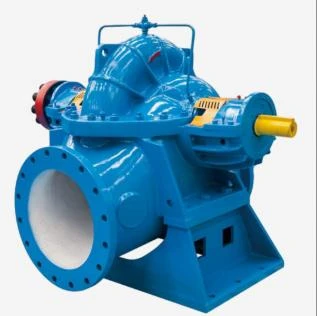Latin
- Afrikaans
- Albanian
- Amharic
- Arabic
- Armenian
- Azerbaijani
- Basque
- Belarusian
- Bengali
- Bosnian
- Bulgarian
- Catalan
- Cebuano
- Corsican
- Croatian
- Czech
- Danish
- Dutch
- English
- Esperanto
- Estonian
- Finnish
- French
- Frisian
- Galician
- Georgian
- German
- Greek
- Gujarati
- Haitian Creole
- hausa
- hawaiian
- Hebrew
- Hindi
- Miao
- Hungarian
- Icelandic
- igbo
- Indonesian
- irish
- Italian
- Japanese
- Javanese
- Kannada
- kazakh
- Khmer
- Rwandese
- Korean
- Kurdish
- Kyrgyz
- Lao
- Latin
- Latvian
- Lithuanian
- Luxembourgish
- Macedonian
- Malgashi
- Malay
- Malayalam
- Maltese
- Maori
- Marathi
- Mongolian
- Myanmar
- Nepali
- Norwegian
- Norwegian
- Occitan
- Pashto
- Persian
- Polish
- Portuguese
- Punjabi
- Romanian
- Russian
- Samoan
- Scottish Gaelic
- Serbian
- Sesotho
- Shona
- Sindhi
- Sinhala
- Slovak
- Slovenian
- Somali
- Spanish
- Sundanese
- Swahili
- Swedish
- Tagalog
- Tajik
- Tamil
- Tatar
- Telugu
- Thai
- Turkish
- Turkmen
- Ukrainian
- Urdu
- Uighur
- Uzbek
- Vietnamese
- Welsh
- Bantu
- Yiddish
- Yoruba
- Zulu
Telephone: +86 13120555503
Email: frank@cypump.com
Dec . 27, 2024 19:03 Back to list
slurry pump volute liner details
Understanding Slurry Pump Volute Liners Key Details and Importance
Slurry pumps are vital components in various industries, including mining, mineral processing, and wastewater management. They are designed to transport abrasive and viscous mixtures—commonly referred to as slurries—effectively and efficiently. A critical component of these pumps is the volute liner, which plays a significant role in the overall performance and longevity of the slurry pump. In this article, we will explore the key details of slurry pump volute liners, highlighting their importance, materials, design considerations, and maintenance practices.
What is a Volute Liner?
The volute liner is an integral part of the pump casing that surrounds the impeller. It is responsible for converting the kinetic energy generated by the impeller into pressure energy, thereby facilitating the controlled flow of slurry through the pump system. The design of the volute liner directly influences the pump's efficiency, capacity, and wear resistance.
Importance of the Volute Liner
1. Wear Resistance Slurries often contain abrasive particles that can lead to significant wear and tear on the pump components. A high-quality volute liner made from wear-resistant materials is essential to extend the lifespan of the pump and reduce downtime due to maintenance.
2. Flow Efficiency The shape and design of the volute liner are engineered to optimize the flow of slurry. An effectively designed volute helps in maintaining smooth flow patterns, reducing turbulence, and enhancing the overall efficiency of the pump.
3. Pressure Management The volute liner also plays a crucial role in managing the pressure within the pump. By converting kinetic energy effectively, it helps maintain the desired pressure levels, which is vital for ensuring optimal operational performance.
Materials Used in Volute Liners
Volute liners are constructed from various materials based on the specific application and the type of slurry being pumped. Common materials include
- Chrome Alloy This material is known for its excellent wear resistance and hardness, making it suitable for abrasive slurries. Chrome alloy liners are often used in mining and mineral processing applications.
- Rubber Linings Rubber is utilized for its flexibility and ability to absorb shocks, making it ideal for handling less abrasive but more viscous slurries. Rubber-lined volute liners are common in applications such as wastewater treatment.
slurry pump volute liner details

- Ceramic Coatings In some cases, ceramic coatings are applied to volute liners to enhance wear resistance. These coatings can provide superior protection against abrasion and corrosion, thereby extending the lifespan of the liner.
Design Considerations
When designing a volute liner, several factors need to be taken into account
1. Slurry Characteristics The type, concentration, and size of particles in the slurry play a significant role in defining the liner's material and design.
2. Pump Size and Configuration The overall size and design of the slurry pump must be considered to ensure that the volute liner complements the pump's performance expectations.
3. Flow Rate and Pressure Desired flow rates and operating pressures influence the volute design to ensure efficient slurry movement.
Maintenance Practices
Regular maintenance of the volute liner is essential to maximize the performance and lifespan of a slurry pump. Key maintenance practices include
- Visual Inspections Regularly checking for signs of wear, damage, or erosion helps in addressing issues before they escalate.
- Replacement and Repair Timely replacement of worn-out liners is crucial to maintain efficient operation.
- Monitoring Performance Keeping track of pump performance can help identify any drops in efficiency that might indicate issues with the volute liner.
In conclusion, understanding the critical role of slurry pump volute liners is essential for optimizing pump performance and longevity. By selecting the right materials, considering design factors, and implementing proper maintenance practices, industries can ensure efficient and reliable operation of their slurry pumps.
-
AI-Optimized Pipeline Pumps | Boost Efficiency
NewsAug.05,2025
-
Reliable Non-Clog Sewage Pumps with GPT-4-Turbo Tech
NewsAug.04,2025
-
High-Performance Air Pumps for Sand & Gravel | Efficient Transport
NewsAug.03,2025
-
ISG Series Vertical Pipeline Pump - Chi Yuan Pumps Co., LTD.|Energy Efficiency, Corrosion Resistance
NewsAug.03,2025
-
ISG Series Pipeline Pump - Chi Yuan Pumps | Energy Efficiency&Compact Design
NewsAug.03,2025
-
ISG Series Vertical Pipeline Pump - Chi Yuan Pumps Co., LTD.|High Efficiency, Low Noise, Durable
NewsAug.02,2025










